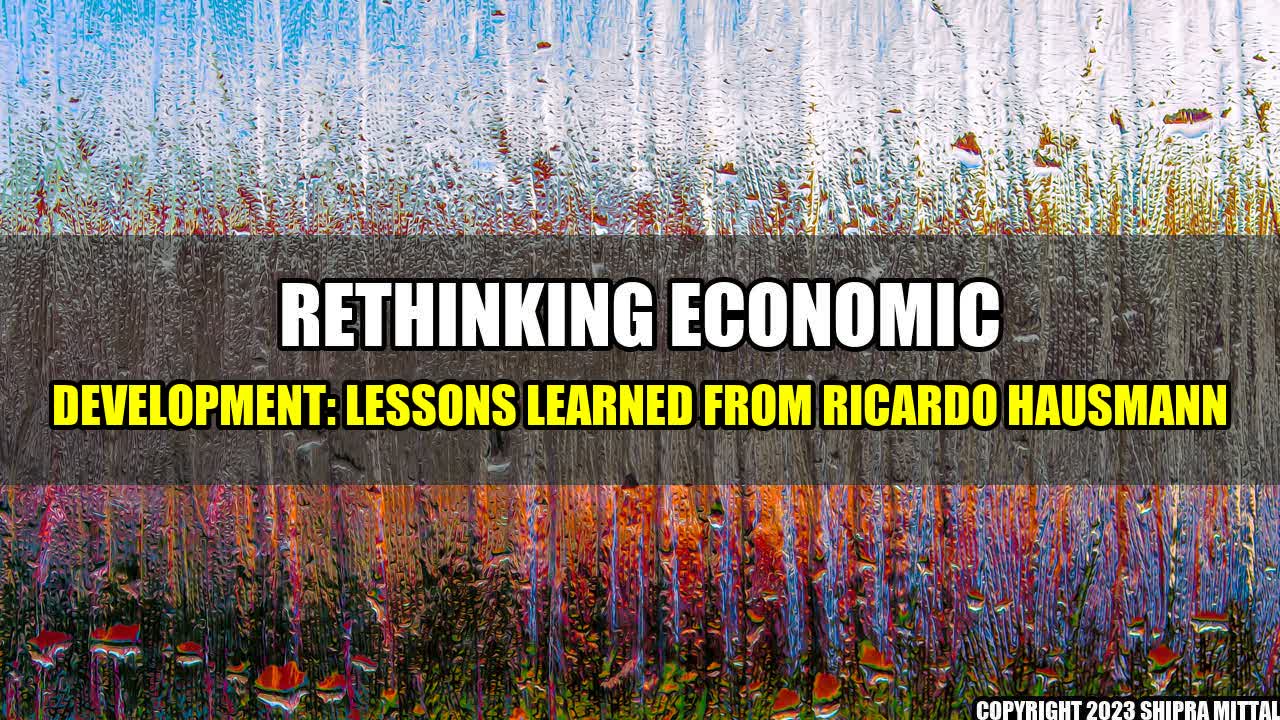
Once upon a time, Jamaica's economy was booming. The tiny Caribbean island was one of the world's largest exporters of bauxite, sugar, and coffee. Despite facing various political and social upheavals, the country managed to maintain steady growth and attract foreign investors. However, over the past few decades, Jamaica's economy has been in a slump. The GDP per capita has remained stagnant, and the country's debt has soared. The question on everyone's mind is what happened?
To help find answers to this question, the Jamaica Gleaner recently hosted a webinar with Ricardo Hausmann, Director of Harvard's Growth Lab and former Minister of Planning in Venezuela. During the webinar, Hausmann provided insights and recommendations on how to promote economic development in Jamaica and other developing countries.
Hausman's message was clear: economic development is not just about increasing GDP. Instead, it's about developing a society where everyone can participate and benefit from economic growth. Here are three key takeaways from his presentation:
It's no secret that Jamaica's economy is heavily dependent on tourism, which accounts for over 30% of the country's GDP. However, as Hausmann points out, overreliance on one sector can be detrimental to a country's economic growth in the long run. "Specialization is good, but over-specialization can be harmful," he notes.
Hausmann recommends diversifying Jamaica's economy by focusing on industries that have a strong potential for growth, such as agriculture, mining, and logistics. He suggests that the government should invest in infrastructure and education to attract foreign investors and promote innovation. For example, developing Jamaica's logistics sector could potentially create more jobs and increase the country's competitiveness in the global market.
According to Hausmann, economic growth is closely linked to human development. Therefore, investing in education and healthcare is crucial for creating a workforce that is competitive and productive. He points out that Jamaica has an impressive literacy rate of 97% but lags behind other countries in tertiary education.
Hausmann recommends that Jamaica invests in vocational and technical education, which can provide practical skills and create opportunities for entrepreneurship. Additionally, he suggests that the government should focus on providing access to quality healthcare and nutrition, which can improve the overall health and wellbeing of the population.
In today's interconnected world, collaboration and knowledge sharing are crucial for economic success. Hausmann emphasizes that Jamaica can benefit from collaboration with other countries, as well as diverse sectors within the country. He encourages the government to engage with the private sector, civil society, and academia to create a culture of collaboration and innovation.
In conclusion, Hausmann's insights provide valuable guidance for promoting economic development in Jamaica and other developing countries. By diversifying the economy, building human capital, and embracing diversity and collaboration, Jamaica can build a society where everyone can participate and benefit from economic growth.
To illustrate the potential impact of implementing Hausmann's recommendations, here are some quantifiable examples:
In conclusion, promoting economic development is not a one-size-fits-all approach. However, by following Hausmann's recommendations, Jamaica can foster a culture of innovation, collaboration, and inclusion. By diversifying the economy, building human capital, and embracing diversity, Jamaica can create a society where everyone can participate and benefit from economic growth.
Curated by Team Akash.Mittal.Blog
Share on Twitter Share on LinkedIn